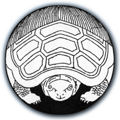All fiction, even the wildest and most speculative, is rooted (where else?) in an author's life and experience. But even the most truthful, precise and accurate recounting, be it historical, autobiographical or journalistic, is never entirely what it seems. So where is the border between fact and fiction? Does it exist, and if so, how do we cross it? Is it really a fine line, or more like a swamp--a murky and liminal haunt of the imaginary and the misrembered? Is this the source from which fiction draws its power? Fiction is a powerful medium. Stories communicate. They touch readers' hearts and have an enormous capacity to change people's minds. But as every fiction writer knows, writing socially engaged fiction comes with an inviolable contract never to use story solely for didactic or pedagogic purposes. Propaganda fails as fiction.
A fiction writer's obligation is to story. Much of this workshop will be devoted to timed writing exercises, using prompts to develop strong, compelling characters and plots, and to ween us from our staid, reality-based ways of writing about our experience and our beliefs. We'll practice the power of "what if...?", directing our human habit of wishful thinking to create compelling fictional worlds. We'll also spend time sharing work, offering and receiving careful feedback, and discussing issues of privacy and respect for others, which concern all writers, but especially those writing autobiographically-based fiction. If you've ever wanted to write short stories or a novel, but felt too constrained by the fetters of reality, this workshop will help you expand your writing potential and take the leap of faith.
